
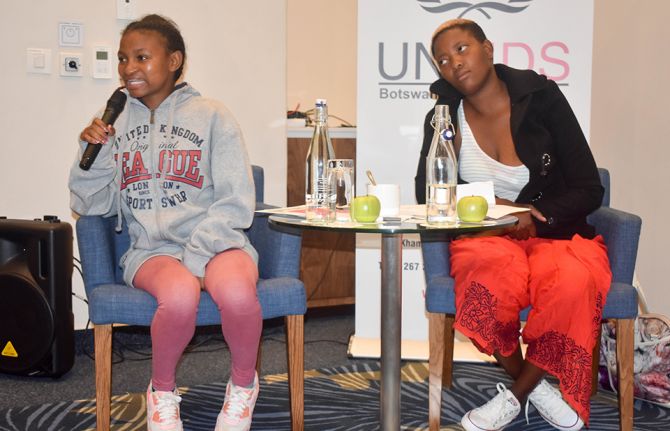
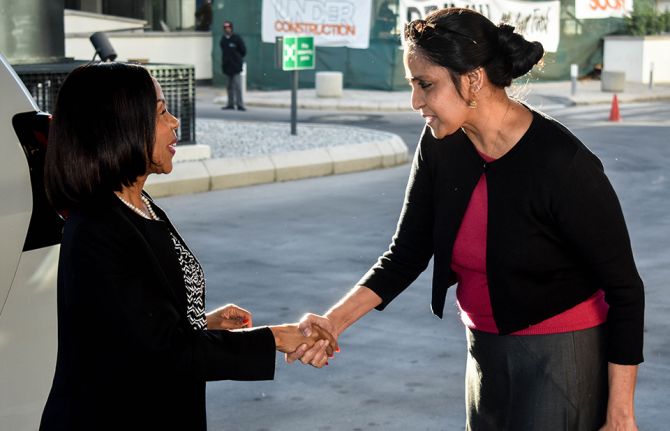
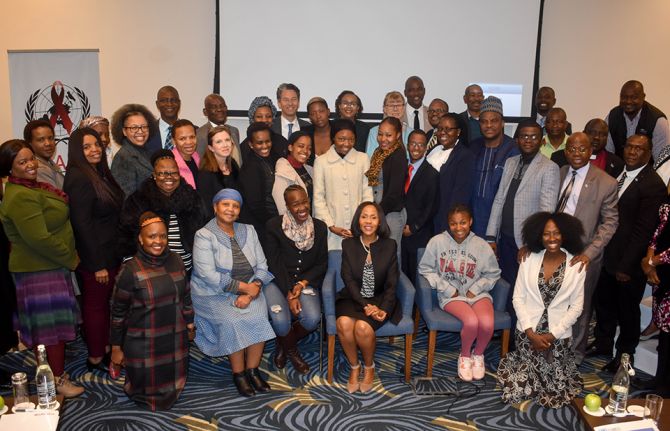
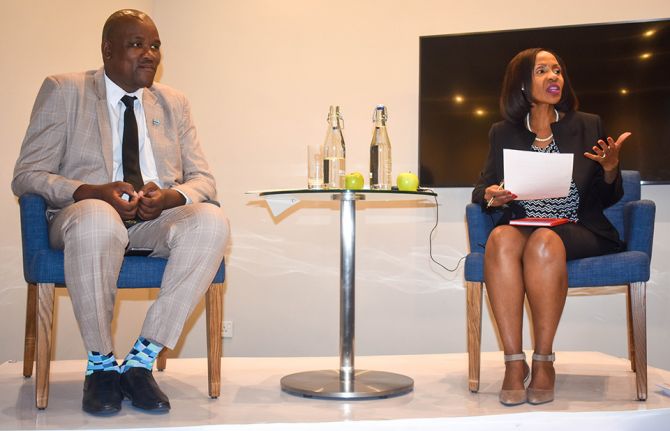
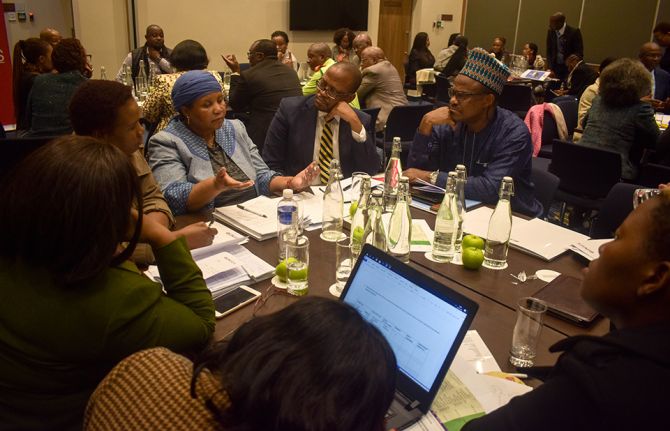
Feature Story
Botswana puts young people at the centre of its AIDS response
25 July 2019
25 July 2019 25 July 2019While Botswana has made great progress in reducing the number of new HIV infections—down around 36% in total since 2010—young people remain highly vulnerable to the virus. Adolescent girls and young women are particularly at risk of HIV infection as well as other sexually transmitted infections and unintended pregnancy.
In 2018, almost one in four new HIV infections in Botswana occurred among young women and adolescent girls aged 15-24 years old. Less than half of young women and adolescent girls say they have comprehensive knowledge about HIV.
To see what more can be done to address the issues making young people more vulnerable to HIV, the First Lady of Botswana, Neo Masisi, held a retreat in July to look at the challenges confronting them.
Young women participating in the retreat shared some of their experiences with the First Lady and officials from the Ministry of Health.
“I come from a strained family structure where poverty is rife. I never felt loved at home and looked for love outside. I got a boyfriend and eventually I too became a teenage mother,” said Belinda.
The discussions at the retreat will feed into a framework for the development of a national flagship programme for young people.
“Today’s young people are dealing with multiple challenges and they have to take on so much—at school, within changing family dynamics, societal expectations. They question their norms, values and their own worth,” said Ms Masisi. “We need to treat them as leaders so that they can feel valued.”
The Minister of Health, Alfred Madigele, said further consultations would be held with young people to produce the framework.
Earlier this year, the UNAIDS Executive Director a.i., Gunilla Carlsson, appointed Ms Masisi as UNAIDS Special Ambassador for the empowerment and engagement of young people in Botswana.



